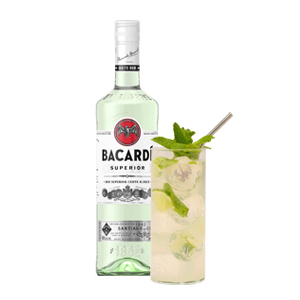
Chinese New Year, also known as Lunar New Year or Spring Festival, is the most important Chinese holiday. Celebrated by more than 20% of the world, it is defined as the first day of the first month in the traditional Chinese calendar.
In the legend of the Spring Festival’s origin, this was when the monster Nian would come and terrorize the villages. The people would hide in their homes, prepare a feast with offerings to the ancestors and gods, and hope for the best.
Food is one of the things that the Chinese take the most pride in. And of course, a lot of care and thought is put into the menu for the most important holiday of the year. So, in honor of this respect for food, we’ve put together some drink pairings with common dishes served during the Chinese New Year.
Dumplings
As a classic Chinese dining staple, dumplings represent wealth. The best part – according to legend – the more dumplings you eat during the New Year’s celebrations, the more wealth you are inviting into your life.
A light-bodied red wine such as Pinot Noir is versatile, and will be the perfect companion for any style of dumplings, whether filled with mincemeat, shrimp or finely chopped vegetables.
Noodles
For Chinese New Year, people like to eat long noodles.
They are also called longevity noodles. You aren’t allowed to cut them and should try not to chew either. The longer the noodle, the longer your life will be.
A crisp Pinot Grigio will pair wonderfully. Its fresh fruit flavors, crisp acid and rich texture make it a great wine to pair with spicy or rich foods. It will work well with both stir fry or broth style longevity noodles.
Steamed Fish
Fish represents prosperity and eating fish throughout Chinese New Year encourages the surplus of this prosperity. Fish is not only healthy but also the type of food important to bring good luck.
Fish cooked in any style pairs well with most varieties of white wine. Many connoisseurs agree that different types of Asian food tend to work very well with German Riesling, particularly when the food happens to be quite spicy. The sugar in the wine is said to work well to balance the spice.
But what about beer?
If you are having some spicy food, as many Chinese dishes are, you will find that an India Pale Ale, or IPA, does a good job of cutting through that spice. Or a saison, known for its peppery, lemony flavors which enhance the intensity of the Sichuan peppercorns found in many Chinese dishes.
Try a Pilsner Urquell pairing for fried rice. The bready malt flavors will match the sweetness of the carrots and peas. The Saaz hops will work with garlic and other spices in the rice and the quenching quality of the beer will make short work of the rich oily rice and proteins.
A pilsner is often a perfect choice for lighter food, such as seafood. If you are having a dish that has roasted meat, a porter could work out nicely for you.
Chinese Wine Culture
China is renowned for its tea, but the wine culture is just as long and just as important. Especially during the Chinese New Year.
In Chinese, “Alcohol” is a homophone, or the same sounds or group of sounds, of “long-lasting” and during festivals everyone drinks to eternal friendships, happiness, health, and other such well wishes.
Each holiday has different drinks associated with it, and for the New Year it’s nianjiu, which translates to “year alcohol.” Despite (or due to) the importance of nianjiu, there isn’t a specific type. Families have their own unique alcoholic beverage that they drink every year during the festival.
The most common alcohol is Chinese white wine, or baijiu. Although similar to other East Asian drinks, baijiu is much stronger and more similar to vodka and is drank using shot glasses. It can be consumed straight or as a mixer in cocktails.
Cheers!
The default toast in China is ganbei (sounds like: “gon bay”) which literally means “dry cup.” And unlike in the West, you’ll be expected to empty your cup after each toast given, or at least give it your best effort!
For enjoying in the celebration, make sure to stop by Spec’s and ask our experts for suggestions on wines, beers and spirits!
Ganbei!




